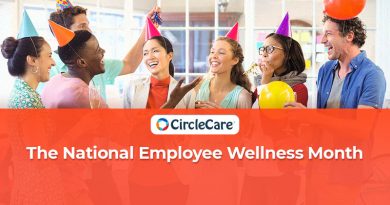Close to two years into the COVID-19 pandemic, communities the world over continue to grapple with the challenge of stemming the tide of infection while simultaneously sustaining social and economic activity. In light of this, efficiently disseminating correct and up-to-date information on the disease is critical to navigating this balance successfully. And because the average adult is likely to spend the majority of their time at work, making such information accessible within the workplace is key to controlling the spread of COVID-19.
COVID-19 education in the office can benefit not only employees and the companies at which they work but also the greater societies at large. As lockdown restrictions ease and businesses resume onsite operations, workplaces are becoming key avenues for spreading awareness on matters of health and safety. These include, but are not limited to, effective hygiene practices, the proven value of wearing protective gear such as face masks and custom neck gaiters, and currently active testing and vaccine campaigns. Though some may now take such information for granted as common sense after living with the pandemic for an extended period, making it available remains important. Why is this the case?
How Good Information Can Save a Life
Generally speaking, what the average person knows about COVID-19 will draw from many sources, often offering different levels of detail and credibility. Such sources include official advisories from government and health organizations, mass media, social media, and word-of-mouth, among others.

Corporate Wellness App
CircleCare
Consider how these sources often aim to collect and disseminate their messages as widely as possible at a rapid pace. Given this, they can just as easily contribute to the spread of misinformation, whether by simply failing to verify their material or deliberately misleading the public with false claims.
It becomes especially important then for employers to position themselves as trustworthy sources of information when it comes to COVID-19. In so doing, they can actively help their employees counter the dangers posed by such a vast and volatile informational landscape.
Another factor to consider is that already vulnerable populations often struggle with just getting the information they need. This is true of workers from rural and low-income urban areas, for example, with limited access to electricity and to such conveniences as TV and the internet outside of work. Since such populations are also likely to be at great risk for COVID-19, ensuring democratic access to information at work helps even the most vulnerable protect themselves more effectively.
Boosting COVID-19 Awareness Where You Work
Though the challenges are significant, carrying out well-conceived awareness initiatives need not be grand or complicated. Such initiatives can come in the form of activities and resources that employees engage with on a regular basis: promotional materials, circulars, training and information sessions, and the like. Whichever methods or strategies you choose to employ, always keep these useful principles in mind:
Consider Your Context
The context of your particular workplace will largely determine what is most useful for your awareness initiative to focus on, as well as other important factors such as the medium and the kind of language used. For instance, an organization running onsite operations will want to diligently promote proper sanitation and hygiene. Placing readily visible and visually memorable posters and diagrams around the office premises will do this job effectively. Modify the Environment to Encourage Healthy Habits
As mentioned above, displaying posters or infographics detailing how to observe correct hand-washing and social distancing accustoms staff members to observing these practices diligently. Make essential supplies like disposable face masks, tissues, and hand sanitizer regularly and clearly available. This will make it easier for all present to practice good respiratory hygiene, and to continue cultivating these habits in general daily life.
Detail a Call to Action
Your audience needs to know what to do with the information you present them with, and they’re also more likely to comply if they know why it’s good for them to take that particular action. Understanding, for instance, the airborne nature of COVID-19 transmission makes the practical value of masking clear. In the same vein, systematically debunking misconceptions regarding vaccines helps incentivize people to get vaccinated. To convey these messages effectively, be sure to avoid employing too much medical or scientific jargon and instead use everyday language where possible. This will make your call to action easier for the reader to understand, remember, and eventually act upon.
Source Your Information
It’s important to document the sources of the information you disseminate clearly. Doing so assures your audience that what you’re telling them can be trusted, and enables them to cross-check it if necessary. Make sure that the resources you consult are as up-to-date as possible.
Make the Information Easy to Digest
Productive awareness efforts make information easy to find, recall, and refer to later. Messages or policy statements circulated via email, for example, benefit from having their central topic stated in the subject header in clear and concise language. Seminars and training sessions should ideally be documented in multiple forms, such as text transcripts, videos, audio recordings, and so on.
Offer Avenues to Learn and Do More
Point your audience toward places where they can do supplementary reading or get involved with community initiatives, if they’re so inclined. This emphasizes that your collective efforts toward COVID-19 awareness at your workplace have a greater social significance, and also work in tandem with the efforts of other individuals and organizations.
Although keeping yourself and those you work with abreast of the best ways to fight COVID-19 may seem like a daunting task, the rewards of sustained awareness efforts at work are worth the effort. Proactive awareness-raising sends the message that health and safety are among a company’s major priorities. In the process, these efforts help alleviate employee anxiety and strengthen their morale. So supported, your employees will be equipped not only to do better work, but also to make educated choices about how to care for themselves, each other, and those they go home to at the end of the day.






Pingback:The 4 Downsides Of Working As A Registered Nurse - CircleCare
Pingback:How Data Sharing Can Benefit Healthcare - CircleCare